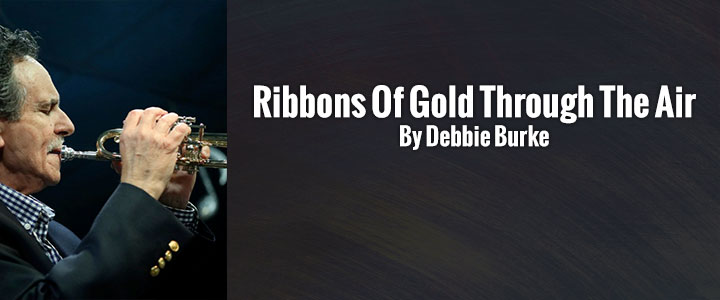It can be the cool “So What” by Miles Davis or the thoughtful jazz chestnut “On Green Dolphin Street” or something fast and spicy. No matter: Claudio Roditi’s trumpet speaks in a way that fills a room with sweet honey sounds. He left his native Rio de Janeiro while in his early 20s to study at Boston’s Berklee College of Music, and played with greats like Herbie Mann and Paquito D’Rivera. His Brazilian-informed understanding of the horn puts audiences in awe, as well they should be.
Claudio Roditi first came to the US via Boston in September of 1970. “I had a dear friend from high school, Victor Assis Brasil, who had come to Berklee the year before, and he was influential in my coming to Boston to study. I also knew pianist Nelson Ayres, so I had a couple of friends.”
He had no intentions of remaining in the US. “The fact that I ended up staying upset my mother, Daisy, terribly. However, I found the love of my life: Kristen,” he said.
He started with piano lessons at age six, then bongos, then at age nine asked his father Alberto to buy him a trumpet. His father played guitar and sang; then Maestro Fernandez (originally from Uruguay), gave him piano lessons. “I’d ask my father to buy me any record that had a trumpet or trumpeter on the cover. So I got albums by Louis Armstrong, Harry James and Ray Anthony.”
He also fell in love with the music of Miles Davis, Dizzy Gillespie, Roy Eldridge, Chet Baker, Lee Morgan, Booker Little and Freddie Hubbard.
A freelance musician, he’s toured the world; mostly as a sideman, but also with a group of his own to Umbria Jazz Winter Festival in Italy, and also to Graz, in Austria. He has performed with Paquito D’Rivera, Dizzy Gillespie, Tito Puente, Herbie Mann and McCoy Tyner.”
Although he has no Grammy to his name (yet), his received his first nomination for a solo he played on the CD “Symphonic Bossa Nova” by Ettore Stratta, which was for best instrumental performance; and he was also nominated for his CD “Brazilliance x 4.”
“My intention in music is to bring some beauty and happiness to the world, doing something I love to do. Life is frequently rough and it feels really good when you touch people in a positive way.”
He improvises “to make sense and create something I think is beautiful.”
“Music is something we cannot live without. To dedicate my life to that purpose is fulfilling, and despite the difficulties in making a living from it, I think it has been well worth it.”
